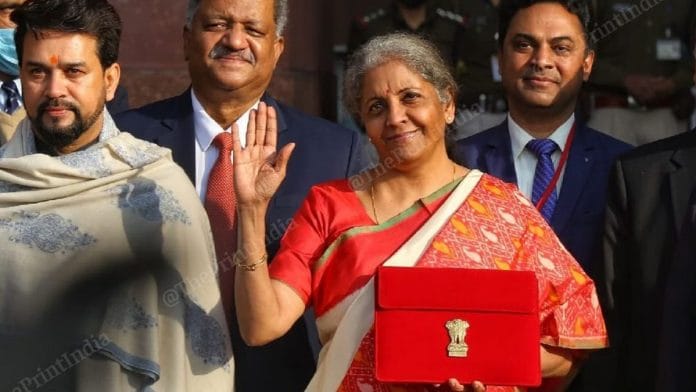Budget 2023 is about a week away. Newsrooms across the country are feverishly thinking of ways to package their coverage in the most eye-catching ways. From consultancies, investment banks, to research agencies, every financial organisation worth its salt is busy explaining its Budget expectations to whoever will listen. But all of them seem to be missing one fundamental question: Is the Budget all that important anymore?
The Union Budget started as a statement of accounts—detailing the revenue and expenditure position of the year gone by and the same for the year ahead. Budget speeches from 1947 to about 1970 were dry affairs and essentially a recitation of facts and figures. From 1970 onwards, though, this began to change. Budget speeches became much more political and began to include slogans and catchphrases.
More recently, this balance has shifted in favour of rhetoric over substance. Things like the revised estimates for the year and a deeper look at the economy have been discarded in favour of lengthy speeches capturing all the new schemes and initiatives being announced.
But the Union Budget has waned in importance for reasons other than the diminishing substance of the Budget speeches themselves.
Also read: Does inflation targeting work? IMF paper casts doubt on policy of RBI, many other central banks
Rhetoric trumps substance
Let’s start with taxation. The Union Budget used to be the key policy document regarding taxation proposals for the year. It was in the Budget that the government announced changes in income tax, corporate tax, excise duty, customs duty, service tax, and the whole host of other taxes levied by it.
Now let’s cut to July 2017, when the Goods and Services Tax (GST) was rolled out in India. In one swoop, proposals pertaining to 45-50 per cent of the government’s tax revenue were taken out of the Budget and placed under the GST Council. Incidentally, GST itself was launched in a special joint parliamentary session.
With this, the bulk of the public’s interest in the Budget—from what’s set to get cheaper to what will become more expensive–also ceased to exist.
Also read: Budget 2023 must focus on agricultural productivity, not production. Go beyond populism
Tax proposals not limited to Budget
As a result of the majority of indirect taxes being taken out of the Budget, Part B of the document, which deals with all taxation proposals, has become significantly slimmer. However, since it still contains income tax and corporate tax proposals, one would assume that it still holds great importance for tax policy. Some value, yes, but hardly significant.
While the Budget, of course, includes important direct tax proposals, it’s not as if important direct tax proposals are limited to the Budget document. Take corporate taxes, for example. In September 2019, the government announced drastic cuts in corporate tax rates. Given that the 2019 Budget was presented in July, after the Lok Sabha elections, it had to have been a conscious call by the government to keep such an important decision out of the Budget.
The only item of public interest that has remained the sole domain of the Budget is the income tax. Hopes for a tax cut spring, but those hopes are often dashed. Maybe Budget 2023 will be different; let’s see. There’s also the possibility that a decision will be announced outside of the Budget and closer to the date of the 2024 Lok Sabha elections.
Also read:
Crucial decisions don’t wait for Budget
Even previously, several crucial decisions—such as the bank nationalisation of 1969, demonetisations of 1978 and 2016, launch of the Mahatma Gandhi National Rural Employment Guarantee Act 2005, rollout of the National Food Security Act 2013, launch of the Insolvency and Bankruptcy Code 2016, and the various bank mergers of 2020—were all taken outside of the Budget.
One would think that the Covid-19 pandemic would have increased the Budget’s importance as a tool to forge a recovery, but the exact opposite has happened. The multiple Atma Nirbhar Bharat packages announced in 2020 and 2021 meant that the government set a strong precedent for making a bulk of its vital decisions periodically throughout the year rather than all at once in the Budget.
In fact, given the geopolitical vagaries in the region, it might even be a better idea to stick with this new approach as it allows periodic recalibrations.
Another reason why the Budget is no longer as important is the nature of government expenditure. The government’s total spending is broadly divided into two categories–revenue expenditure and capital expenditure. Despite this government’s push to increase capital expenditure, the overwhelming bulk of its spending (around 80 per cent) goes as revenue expenditure.
Revenue expenditure refers to recurring expenses such as salaries, pensions, interest payments on loans taken by the Centre, subsidies, etc. Now, salaries and pensions for Central government employees are often modified outside of the Budget by the Union Cabinet, and the changes are as recommended by the respective Pay Commissions. So, the Budget is hardly the last word on such matters.
Interest payments have to be paid no matter what, so the government’s annual financial statement has no real say here either. Subsidies are a major area where the Budget can make a difference, but here too, it’s not as if it’s only the Budget that can make a difference.
Budget time has become more about sensation than substance. Not counting those whose jobs depend on it, when was the last time you met somebody actually interested in what the Finance Minister had to say on 1 February?
(Edited by Zoya Bhatti)






